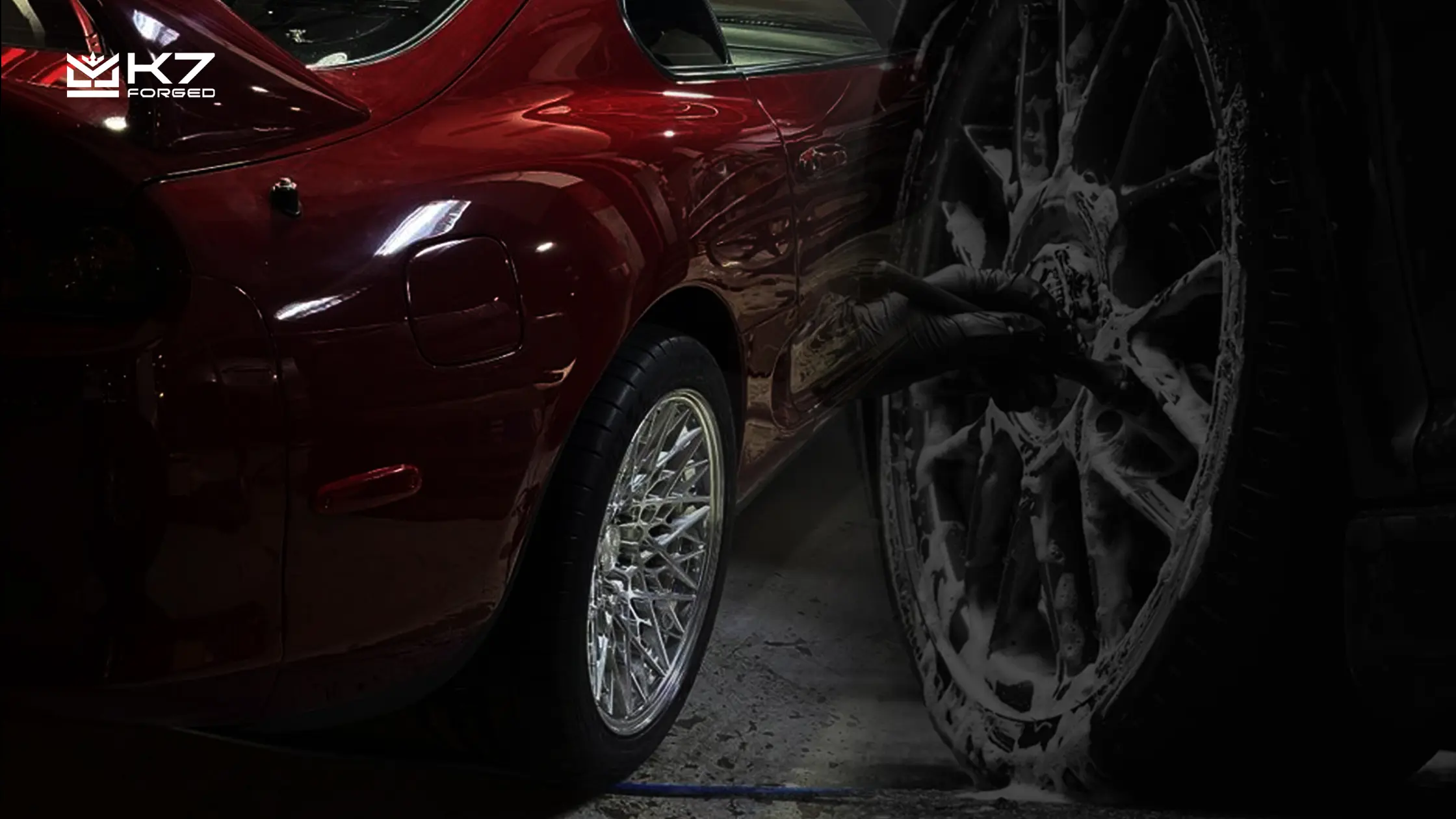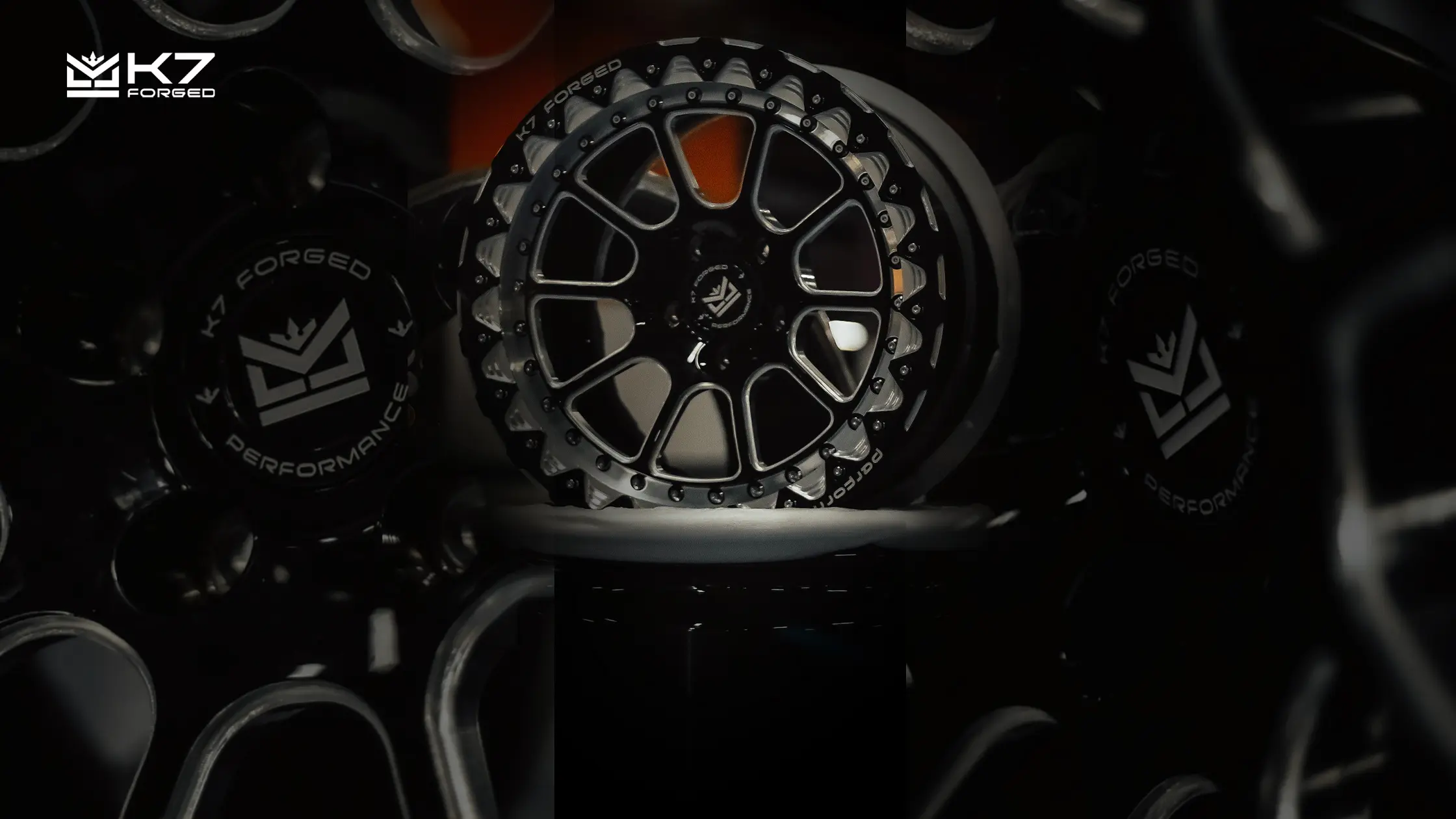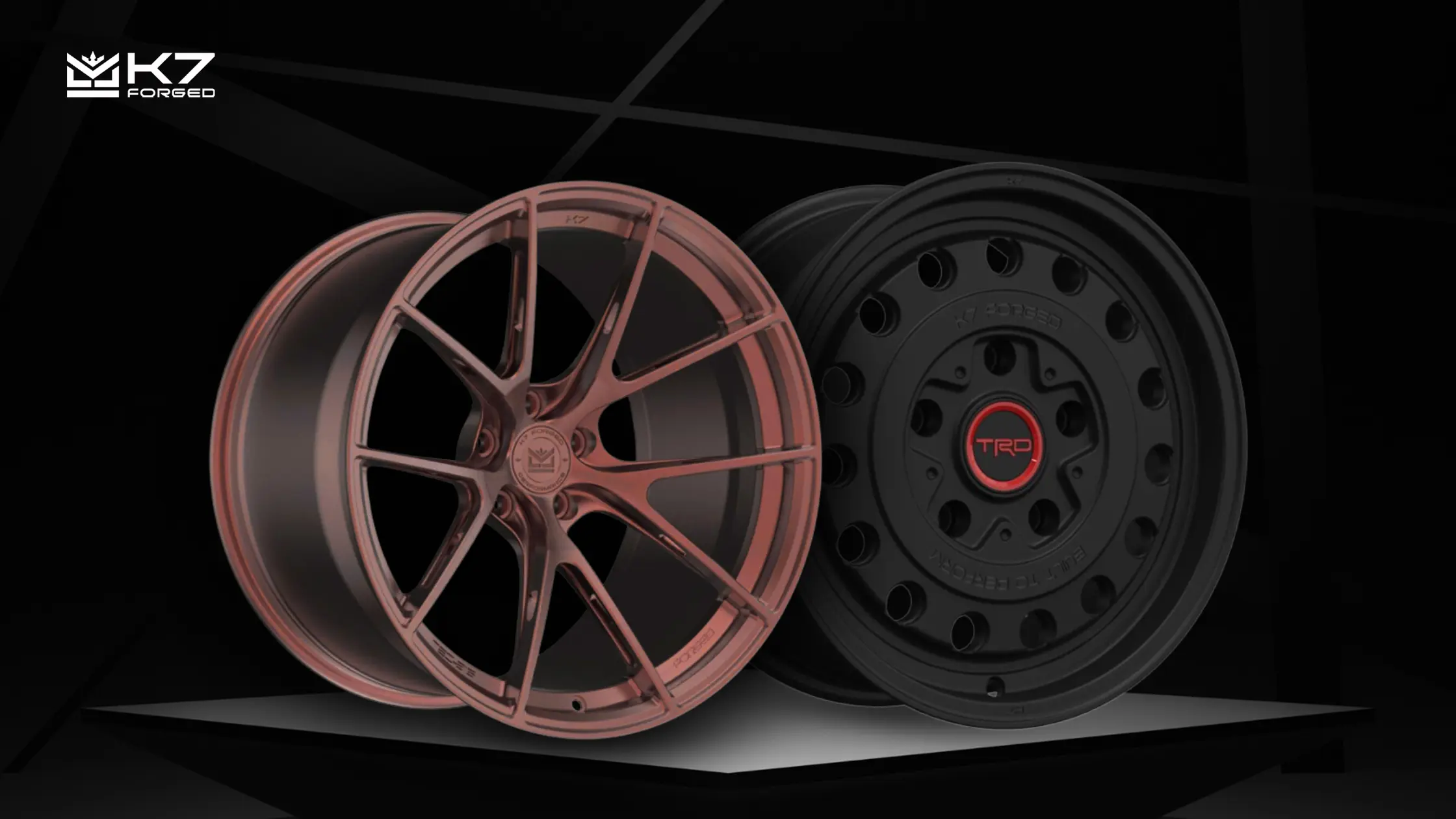Alloy wheels, apart from making your car look stunning, also improve its mileage. Many independent researchers have done several studies and found out that you’ll get anywhere between a 2 to 5% improvement in fuel efficiency.
This may not seem like much, but if your tank has enough juice to take you 100km, alloy wheels can take it to 105. Now, that sounds better.
In reality, many drivers choose alloy wheels for their style alone. But some wonder if it will reduce their car’s mileage.
Not all car rims are designed to increase fuel efficiency. Some are just a style statement, some are more durable, and some are cheap. So, to know more about the fuel impacts of alloy wheels, read this blog till the end.
What Makes Alloy Wheels Different from Steel Wheels?
Steel wheels are tough but heavy. The extra weight increases the rolling resistance of your car. So your engine has to work harder to keep the car moving. Hence, lower mileage.
Alloy wheels are made from a blend of metals, like aluminum or magnesium. Both these elements are lighter and stronger than steel. Also, alloy wheels dissipate heat faster, which can improve braking performance.
Many drivers choose alloy wheels for their design and finishes. However the manufacturing process and quality of materials significantly impact their performance and longevity. So, you’ll need to buy alloy wheels from reputed brands like K7 Forged. Here, you’ll find the best custom alloy wheels in Dubai.
How Wheel Weight Affects Fuel Efficiency?
This might seem like a straightforward answer, but there is more physics at play here.
- Rotational Mass and Energy Consumption
Heavier wheels increase the rotational mass. So, for every rotation that your wheels need to make, they demand more energy from the drivetrain. All those extra drops of fuel eventually reduce the mileage you’ll get from one liter.
Alloy wheels reduce this rotational mass. So, the engine doesn’t need to use as much fuel to accelerate your car. The result? Better mileage and a smoother drive. The efficiency gains are, however, noticed over long distances only.
- Impact on Acceleration and Braking
Acceleration and braking are two things that you’ll notice right away. Lighter wheels make handling easy. When your wheels weigh less, there’s less inertia to overcome. So acceleration in city conditions becomes a lot less straining on the engine.
Braking also improves with alloy wheels. They reduce the load on the braking system. Alloy wheels dissipate heat faster, which means friction is higher and so, a better experience.
Aerodynamics and Wheel Design
As opposed to steel wheels, custom alloy wheels can be made in a variety of designs that also change the characteristics of the wheels.
Influence of Wheel Shape on Airflow
Wheels that are carefully crafted to streamline airflow reduce drag and help the car move more easily through the air. This reduced resistance can improve fuel efficiency, especially at higher speeds where aerodynamics matter more.
For instance, wheels with fewer spokes or flatter profiles create less turbulence. This subtle detail can impact your car’s mileage more than you’d expect. In contrast, bulky designs or wheels with unnecessary grooves can increase air resistance, negating the benefits of lighter materials.
Role of Wheel Size and Width
Bigger isn’t always better, at least not when it comes to alloy wheels and fuel efficiency. Larger wheels may look fantastic, but their added size and width can increase aerodynamic drag. Wider wheels create more surface area for air resistance to act on. So, slightly lesser mileage.
And of course, larger wheels come with heavier tires, which offsets the weight-saving benefits of alloys. So, if you want better mileage, stick to wheel sizes that match your car’s original specifications.
Real-World Experiences of Car Enthusiasts
Car enthusiasts often share their experiences with alloy wheels in online forums and communities, and their opinions vary. Some drivers report a noticeable improvement in fuel efficiency after switching to lighter alloy wheels.
However, not everyone sees the same results. Some drivers claim the change in fuel efficiency is minimal, or they notice no difference at all. The key factor here is that each vehicle is unique.
Your car’s size, weight, and engine type can influence the impact alloy wheels have on fuel economy. Driving habits matter too—aggressive driving with frequent acceleration or braking might reduce fuel savings.
One thing is clear: alloy wheels tend to benefit those with lighter vehicles or cars that already have lower rolling resistance tires.
Scientific Studies on Alloy Wheels and Fuel Economy
A study by the U.S. Department of Energy found that reducing the weight of wheels when combined with low rolling resistance tires, can improve fuel efficiency by 3% or more in commercial vehicles.
This finding matches many real-world experiences—lighter wheels reduce the energy needed for acceleration, allowing your car to travel further on the same amount of fuel. For those driving larger vehicles or commercial fleets, this improvement can give substantial savings over time.
Impact of Material and Design on Performance
Research shows that forged aluminum alloy rims are best for car wheels because they provide the perfect balance of weight reduction and strength. These rims are lighter than steel, and the entire process of forging makes them more durable than regular cast aluminium alloy wheels as well.
So, if you’re looking for wheels that offer both fuel savings and durability, alloy wheels—especially those made of forged aluminium—are a solid choice.
Buy Forged Alloy Wheels from K7 Forged
In the UAE, K7 Forged offers the best custom alloy wheels for your Car. The car rims from K7 Forged give you a lifetime warranty as well because we’re so confident in the manufacturing quality, that we are not worried about any bends or cracks, even after many years of use.
If you’re looking for the best designed alloy wheels that offer class-leading performance and fuel efficiency, buy them from K7 Forged.






